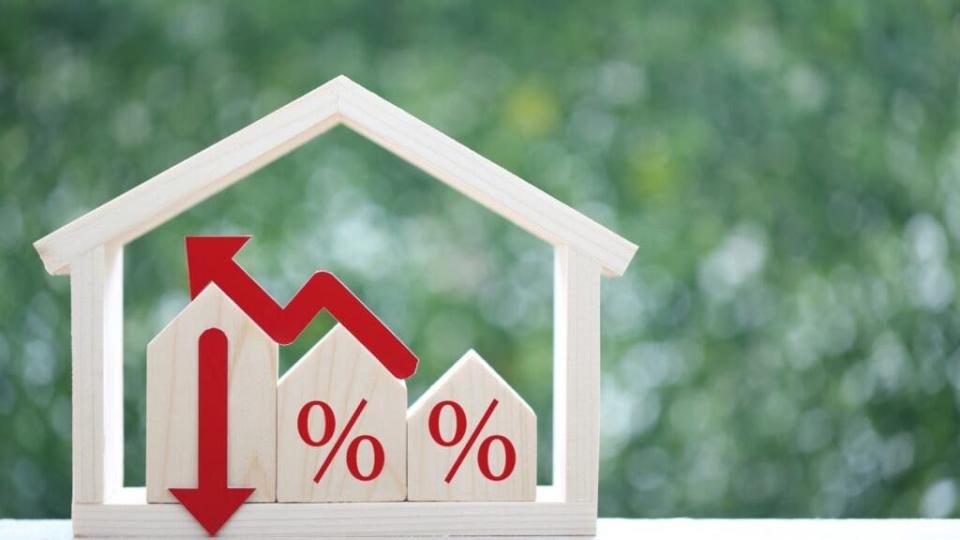Housing Affordability Challenges Persist, Yet Buyer's Market Flourishes In Texas And Florida

Amid rising mortgage rates and general unaffordability nationwide, cities in Florida and Texas are emerging as havens for homebuyers.
While the broader U.S. housing market continues to favor sellers with high prices and tight inventory, specific metro areas in the South are bucking the trend, according to a Zillow market heat index.
In Florida, Jacksonville, Orlando, Tampa, and Miami are classified as buyer's markets, indicating a shift toward conditions favoring buyers over sellers. Jacksonville and Tampa, with a market heat index of 44, and Miami, at 39, are seeing adjustments due to increased inventory levels and slower sales velocities.
Jacksonville and Tampa have benefited from construction efforts that have replenished housing stocks to levels closer to demand, Zillow noted, easing the pressure on buyers.
Don't Miss:
Newly-launched high-yield fund backed by residential real estate has an expected 7-9% annual dividend. Here’s how you can invest today.
Elon Musk has reportedly bought 6,000 acres of land just outside of Austin. Here’s how to invest in the city’s growth before he floods it with new tech workers.
Miami, with the lowest index score among Zillow's highlighted cities, shows the most substantial buyer's market dynamics, characterized by higher inventory levels and a significant rate of price reductions. The shift has been particularly pronounced given Miami's high-value real estate market, where price adjustments can create substantial opportunities for buyers.
Texas cities like Houston, Austin, and San Antonio each have a market heat index in the low 50s, classifying them as neutral markets.
With a market heat index of 55, Houston has a balanced dynamic where neither buyers nor sellers have an advantage. This is due to a consistent supply of new housing developments and a local economy that supports both sides of the market equation.
Austin and San Antonio, both with an index of 52, have seen their inventory levels rise above pre-pandemic figures. The increase in housing supply has significantly shifted the markets to more neutral conditions, Zillow said, alleviating some of the competition among buyers seen in previous years.
National Context
Nationally, though, the housing market remains predominantly in the seller’s territory. Ongoing challenges, including high mortgage rates and elevated home values, constrain buyer activity.
Trending:
Passive income investments are one of the most trusted methods for riding out a recession, so it's no surprise that people are turning to high-yield real estate notes that pay a fixed 7.5% to 9%.
Hotter markets on the West Coast and the Northeast have index scores well into the strong seller’s market territory.
San Francisco and San Jose, with market heat indexes of 111 and 112, respectively, are characterized by fierce buyer competition and rapid sales cycles, with homes often selling in less than three weeks.
Buffalo, New York, touted by Zillow as the hottest market of 2024, boasts a market heat index of 118. Zillow said that inventory constraints and high demand continue to drive quick sales and fewer price cuts, contrary to the national trend toward cooling.
In places like Hartford, Providence, and other Northeastern cities, which also rank high on the seller's market index, the ongoing inventory shortages ensure sellers retain the upper hand.
Experts suggest that the broader housing market may see a shift if mortgage rates stabilize or decline, potentially easing the current seller’s advantage in hotter markets.
However, macroeconomic factors, including Federal Reserve policies and broader inflation trends, are likely to drive those changes.
Read Next:
Investing in real estate just got a whole lot simpler. This Dara Khosrowshahi-backed startup will allow you to become a landlord in just 10 minutes, and you only need $100.
Become a real estate investor today — How to start small by mirroring BlackRock’s big move.
"ACTIVE INVESTORS' SECRET WEAPON" Supercharge Your Stock Market Game with the #1 "news & everything else" trading tool: Benzinga Pro - Click here to start Your 14-Day Trial Now!
Get the latest stock analysis from Benzinga?
This article Housing Affordability Challenges Persist, Yet Buyer's Market Flourishes In Texas And Florida originally appeared on Benzinga.com
© 2024 Benzinga.com. Benzinga does not provide investment advice. All rights reserved.

 Yahoo Finance
Yahoo Finance 